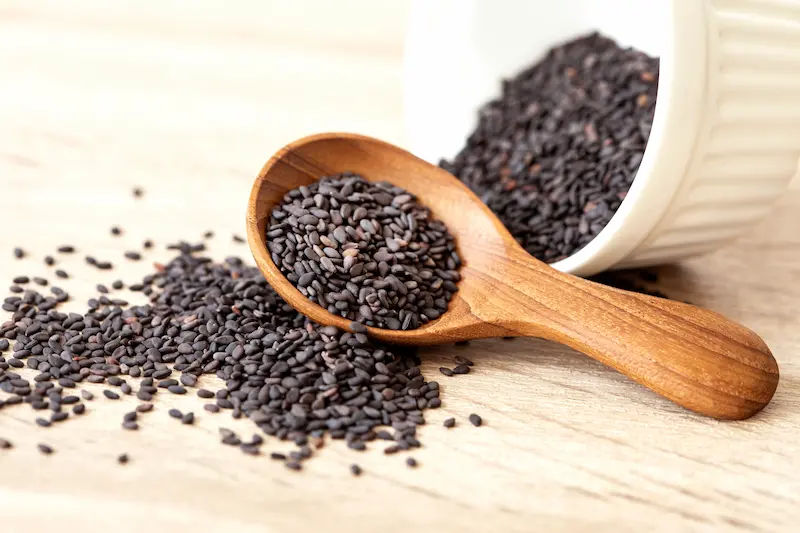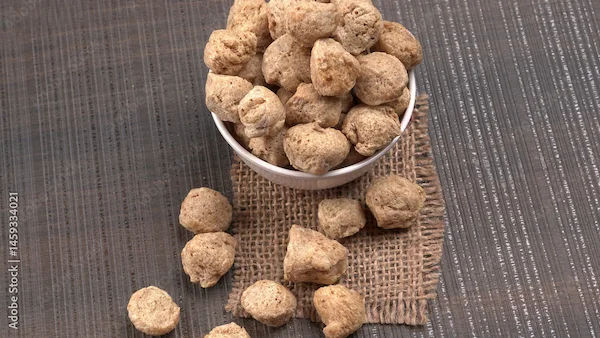Methi (Fenugreek): Ayurvedic Benefits, Uses, and Side Effects
Discover fenugreek benefits, methi seeds uses, dosage tips, and side effects. Learn how this ayurvedic herb fits into your routine—safely and effectively.

Written by Dr. Md Yusuf Shareef
Reviewed by Dr. D Bhanu Prakash MBBS, AFIH, Advanced certificate in critical care medicine, Fellowship in critical care medicine
Last updated on 13th Jan, 2026
%20Ayurvedic%20Benefits,%20Uses,%20and%20Side%20Effects.webp?tr=q-80,f-webp,w-350,dpr-2,c-at_max 700w)
Introduction
Methi, also known as fenugreek (Trigonella foenum-graecum), is a popular ayurvedic herb used for centuries in Indian kitchens and traditional medicine. Today, people around the world are curious about fenugreek benefits—from digestion and blood sugar support to hair and skin care—and how to use methi seeds safely. This guide explains what fenugreek is, how it’s used in Ayurveda and modern wellness, what the research says, and the potential side effects to know before you add it to your routine.
Consult a Top Ayurveda Doctor for Personalised Advice
What is Methi (Fenugreek)?
• Plant family: Fenugreek is an annual herb in the legume family.
• Edible parts: The seeds (methi dana) and leaves (methi greens) are both used in cooking and home remedies.
• Taste and aroma: Seeds taste slightly bitter and nutty; leaves are aromatic and savoury.
• Traditional use: In Ayurveda, methi is valued for supporting digestion, metabolism, and women’s wellness. In modern research, its fibre and plant compounds (such as saponins and alkaloids) are being studied for metabolic and digestive effects.
Fenugreek Benefits: What Science Says
Fenugreek has a long history of traditional use. Modern studies are ongoing, and many findings are promising but not definitive. Always use fenugreek as a complement to, not a replacement for, medical care.
Blood Sugar Support
• What we know: Several small studies suggest fenugreek seed preparations may help lower fasting blood sugar and A1C modestly when used alongside diet, exercise, and prescribed medications.
• Why it may help: Fenugreek seeds are rich in soluble fibre and contain compounds that may slow carbohydrate absorption and influence insulin response.
• Practical take: If you have diabetes or prediabetes, speak with your healthcare professional before trying fenugreek. It can interact with blood sugar medications and increase the risk of low blood sugar.
Digestive Health and Appetite
• Fibre for digestion: The soluble fibre in methi seeds can support regular bowel movements and promote a feeling of fullness.
• Traditional uses: In Ayurveda, small amounts of methi are used to kindle digestion (agni) and ease occasional gas and bloating.
• Practical take: Culinary uses are generally well tolerated; larger supplemental doses can cause stomach upset in some people.
Cholesterol and Heart Health
• What research suggests: Some studies have found reductions in total and LDL (“bad”) cholesterol with fenugreek seed products, likely related to its fibre content and certain plant compounds. Results are mixed across studies.
• Practical take: A heart-healthy lifestyle (diet, exercise, sleep, not smoking) remains the foundation. Fenugreek may offer an additional, modest benefit for some—ask your clinician, especially if you take statins or blood thinners.
Breastfeeding (Galactagogue) Use
• Traditional practice: Fenugreek is one of the most commonly used herbs to help increase breast milk supply.
• Evidence: Research findings are mixed. Some small studies suggest increased milk volume; others show little or no benefit. Side effects (such as stomach upset or maple-syrup-like odour) can occur in parents or infants.
• Practical take: If you’re considering fenugreek for lactation, consult a lactation professional or clinician to ensure correct latch, feeding frequency, and overall plan. Monitor for side effects.
Inflammation and Period Comfort
• Traditional context: Ayurveda uses methi in formulations for joint comfort and menstrual well-being.
• Research status: Early lab and small clinical studies suggest anti-inflammatory potential, but high-quality evidence is limited. Use caution with any claims of pain relief.
Weight Management and Satiety
• Fibre effect: The fibre in methi may increase satiety, which could assist with appetite control as part of a balanced diet.
• Evidence: Human studies are limited and results vary. Fenugreek is not a standalone weight-loss solution.
Hair and Skin Applications
• Traditional and cosmetic use: Methi seed paste, soaked seeds, or diluted extracts are used traditionally on the scalp and skin to support hair strength and soothe the skin.
• Evidence: Mostly anecdotal. Patch-test first; fenugreek can irritate sensitive skin.
Methi Seeds Uses in Ayurveda and Modern Life
Ayurvedic Perspective (Traditional)
• Digestive fire (agni): Small culinary amounts are used to support digestion.
• Balance for kapha: Methi is considered helpful when there is heaviness, sluggish digestion, or excess mucus.
• Women’s wellness: Traditionally included in formulations for menstrual comfort and postnatal support (under expert guidance).
• Joints and muscles: Warm compresses and pastes are used traditionally for comfort.
Modern Everyday Uses
• Culinary:
o Whole seeds in tadka, pickles, and spice blends (like sambar powder).
o Fresh leaves in curries, parathas, dal, and stews.
o Sprouted methi seeds in salads for a crunchy, slightly bitter note.
• Home preparations:
o Soaked seeds: 1–2 teaspoons soaked overnight and used in cooking for easier digestion and less bitterness.
o Herbal tea: Lightly crushed seeds simmered and strained; often combined with ginger or cinnamon.
o Topical pastes: Soaked, ground seeds mixed with aloe or yoghurt for scalp or skin (patch-test first).
• Supplements:
o Capsules, powders, and standardised extracts are available. Product quality varies—choose reputable brands and consult your clinician about suitability and interactions.
How to Use Methi Seeds: Practical Tips
• Start low: Begin with culinary amounts. If using supplements, follow the label and get medical advice—especially if you have a health condition or take medications.
• Reduce bitterness: Dry-roast seeds lightly or soak overnight before cooking.
• Combine wisely: Pair with digestion-friendly spices like cumin, ginger, or fennel.
• Hydration: Fenugreek’s fibre absorbs water; drink adequate fluids.
Safety and Side Effects
Most people tolerate culinary amounts well. Larger doses or supplements may cause side effects.
Common Side Effects
• Stomach upset, gas, bloating, diarrhoea
• Dizziness or headache in some individuals
• Body odour changes: Sweat, urine, and breast milk can take on a maple-syrup-like smell (due to a natural compound in fenugreek)
Allergic Reactions
• Fenugreek is in the legume family. People with allergies to chickpeas, peanuts, or other legumes may be more likely to react.
• Signs include rash, itching, swelling, wheezing, or trouble breathing. Seek urgent care if you have symptoms of anaphylaxis.
Blood Sugar Effects
• Fenugreek may lower blood sugar. If you use insulin or oral diabetes medications, combining them with fenugreek can increase the risk of low blood sugar (hypoglycaemia).
• Monitor your levels closely and speak with your healthcare professional before starting.
Bleeding Risk
• Fenugreek may have antiplatelet effects in some individuals. If you take blood thinners (such as warfarin) or antiplatelet drugs (such as aspirin or clopidogrel), consult your clinician before using fenugreek supplements.
Pregnancy and Breastfeeding
• Pregnancy: High doses of fenugreek are not recommended in pregnancy. Culinary amounts in food are generally considered safe for most, but avoid concentrated supplements unless your clinician advises otherwise.
• Breastfeeding: Commonly used as a galactagogue, but evidence varies and side effects can occur in the parent or the infant. Consult a lactation professional or clinician first.
Children and Older Adults
• Use extra caution with supplements. Start with food-based amounts and seek medical guidance, especially if there are existing medical conditions or medications.
Medication Interactions to Discuss with Your Clinician
• Diabetes medications (for example, metformin, sulphonylureas, insulin)
• Anticoagulants/antiplatelets (for example, warfarin, aspirin, clopidogrel)
• Any medication where changes in absorption may matter; fenugreek’s fibre could affect how some drugs are absorbed if taken at the same time. To be safe, separate fenugreek supplements and oral medications by several hours.
Quality and Buying Tips
• Choose reputable brands: Look for third-party testing seals when possible.
• Prefer standardised extracts if you want consistency, and check the ingredient list for unnecessary additives.
• Store properly: Keep seeds and powders in airtight containers away from heat and light to preserve flavour and potency.
Who Should Avoid Fenugreek or Get Medical Advice First?
• People with diabetes or hypoglycaemia
• Those on blood thinners or with a bleeding disorder
• Anyone with a legume allergy (peanut, chickpea, soy) or a known fenugreek allergy
• Pregnant individuals (avoid high-dose supplements)
• People scheduled for surgery (stop supplements in advance as advised by your clinician)
• Infants and children (avoid supplements unless a paediatric professional advises)
Simple Ways to Add Methi to Your Routine
• Sprinkle a small pinch of crushed seeds into tempering for dals and vegetables.
• Add fresh methi leaves to omelettes, parathas, or lentil soups.
• Brew a mild fenugreek tea with ginger after meals for a warming, digestive drink.
• Mix a small amount of fenugreek powder into yoghurt-based marinades.
• For topical use, apply a patch-tested, diluted fenugreek paste to the scalp once weekly, rinsing thoroughly.
What to Expect and When to Stop
• Timeframe: If fenugreek is going to help with digestion or satiety, you may notice it within days to weeks. For cholesterol or blood sugar, any change is usually modest and takes weeks to months and should be tracked with your clinician.
• Stop and seek advice if you experience:
o Rash, swelling, or breathing difficulty
o Severe stomach upset or persistent diarrhoea
o Signs of low blood sugar (shakiness, sweating, confusion, rapid heartbeat)
o Unusual bleeding or bruising
Key Takeaways
• Fenugreek benefits may include modest support for blood sugar, digestion, and cholesterol, with mixed evidence for breastfeeding support.
• Safety comes first: If you have a medical condition, are pregnant, breastfeeding, or take medications, talk to your clinician before using fenugreek supplements.
• Culinary amounts are a flavourful, low-risk way to enjoy methi. For supplements, choose quality products and monitor how you feel.
Conclusion
Fenugreek, or methi, is a time-honoured herb that bridges Ayurveda and modern wellness through its many potential benefits for digestion, blood sugar, and overall health. Used wisely in food, it adds both flavour and gentle support for metabolic balance. However, supplements should be approached with care, especially if you take medications or have health conditions. Consulting a healthcare professional ensures safe and effective use tailored to your needs. With mindful inclusion, fenugreek can be a valuable part of a balanced and health-conscious lifestyle.Consult a Top Ayurveda Doctor for Personalised Advice
Note: This article is for general education and is not a substitute for personalised medical advice. Always consult a qualified healthcare professional about herbs, supplements, and your specific health needs.
Consult a Top Ayurveda Doctor for Personalised Advice

Dr. Pepsy Jose
Panchakarma Practitioner
14 Years • BAMS, MD Ayurveda (Panchakarma)
Bengaluru
AYURRHYTHM HOLISTIC CLINIC AND PANCHAKARMA THERAPY, Bengaluru

Dr. Shiv Prakash Singh
Ayurveda Practitioner
19 Years • BAMS
Kolkata
Vedhive Ayurveda College Street, Kolkata

Dr. Rik Sadhukhan
Ayurveda Practitioner
8 Years • BAMS
Kolkata
Vedhive Ayurveda, Ballygunge, Kolkata

Dr. Anjan Das
Ayurveda Practitioner
8 Years • Ayurvedacharya ( B.A.M.S )
Dumdum
Vedhive Ayurveda Clinic, Dumdum
Consult a Top Ayurveda Doctor for Personalised Advice

Dr. Pepsy Jose
Panchakarma Practitioner
14 Years • BAMS, MD Ayurveda (Panchakarma)
Bengaluru
AYURRHYTHM HOLISTIC CLINIC AND PANCHAKARMA THERAPY, Bengaluru

Dr. Shiv Prakash Singh
Ayurveda Practitioner
19 Years • BAMS
Kolkata
Vedhive Ayurveda College Street, Kolkata

Dr. Rik Sadhukhan
Ayurveda Practitioner
8 Years • BAMS
Kolkata
Vedhive Ayurveda, Ballygunge, Kolkata

Dr. Anjan Das
Ayurveda Practitioner
8 Years • Ayurvedacharya ( B.A.M.S )
Dumdum
Vedhive Ayurveda Clinic, Dumdum
More articles from General Medical Consultation
Frequently Asked Questions
1) Does fenugreek help control blood sugar?
It may help modestly when combined with diet, exercise, and prescribed medications. Evidence is mixed and not a substitute for medical therapy. If you take diabetes drugs, talk to your clinician to avoid low blood sugar.
2) Can methi increase breast milk supply?
Some small studies and traditional use suggest possible benefit, but results are inconsistent. Work with a lactation consultant first to address latch and feeding frequency. If you try fenugreek, monitor for side effects in you and your baby.
3) Is fenugreek safe during pregnancy?
High-dose supplements are not recommended during pregnancy. Culinary amounts in food are generally considered safe for most people. Always check with your prenatal care provider before taking any herb.
4) How much fenugreek should I take?
.There is no single “right” dose. Studies have used a wide range of amounts and forms. Start with culinary use. If considering supplements, follow the product label and consult your healthcare professional—especially if you take medications.
5) Can I take fenugreek with metformin or blood thinners?
Use caution. Fenugreek can lower blood sugar and may increase bleeding risk. Speak with your clinician before combining fenugreek with diabetes medications, warfarin, aspirin, or other blood thinners.




